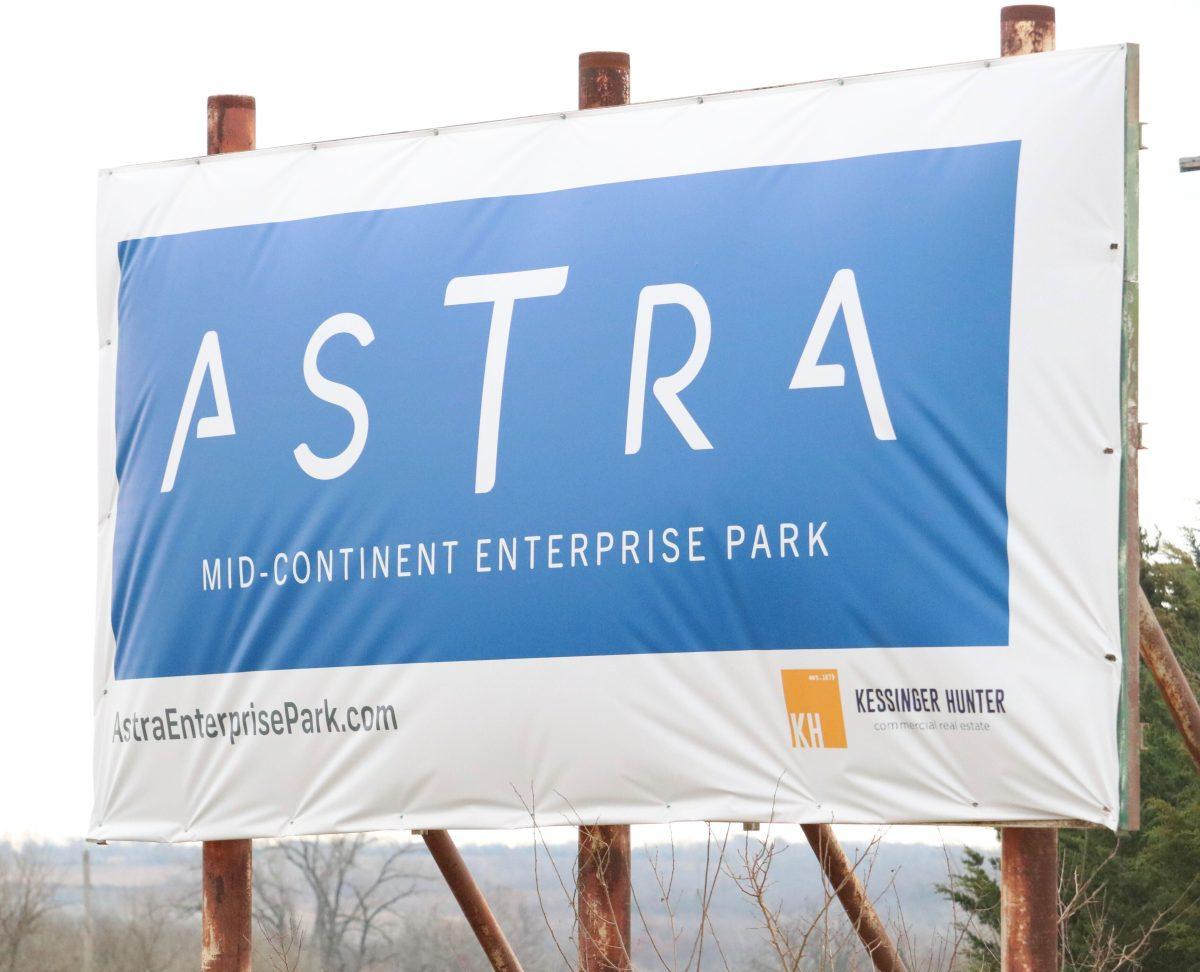 The old Sunflower ammunition plant site gets a new name: Astra Enterprise Park, inspired by the Kansas state motto, “Ad astra per aspera.” " />
The old Sunflower ammunition plant site gets a new name: Astra Enterprise Park, inspired by the Kansas state motto, “Ad astra per aspera.” " />
The old Sunflower ammunition plant site gets a new name: Astra Enterprise Park, inspired by the Kansas state motto, “Ad astra per aspera.”
This is the seventh story in a weeklong series examining the pending arrival of Panasonic. We also created a printed newspaper special section that is on sale now. Watch our Facebook page for where and when we will have copies available.
Panasonic’s new high-tech electric car battery factory – expected to be as big as 43 football fields – is writing a new chapter in the history of a site that has made headlines since World War II.
When it opened in 1943, the Sunflower plant created jobs for Eudora residents, particularly women. But it also triggered housing headaches as up to 12,000 factory workers thronged to the surrounding area to toil in three shifts a day at the world’s largest producer of rocket propellant during the Second World War.
After the Hercules Powder Co. agreed to build and run the ammunition plant for the federal government during the war, Eudora’s population doubled from 900 to 1,800 within three months.
But the plant initially wasn’t popular among Eudora residents, according to an account of 1940-49 in “Where the Wakarusa Meets the Kaw,” an online history of Eudora by Cindy Higgins.
Trailers were parked in the yards of private residences, in pastures and even on the site of the current library as newcomers filed into Eudora to be near plant jobs, the website recalls.
Residents found themselves working long hours at banks and grocery stores to meet increasing demands, and extra classrooms were set up in school lunchrooms, the theater and the Methodist Church basement to handle extra students.
Ben Terwilliger, executive director of Eudora Community Museum, highlights how critical these jobs were to Eudora, especially at a time when there was still division over women working outside the home.
“Women had the chance to go work and provide for their families, which I think helped the women’s rights movement,” Terwilliger said. “Some of the jobs were pretty dangerous because they were around highly explosive materials for long periods of time. Nevertheless, people were willing to put up with that risk, just because it was such a good-paying job for the time.”
About a year after World War II ended, the plant ceased operations but then was reactivated for certain periods during the Korean and Vietnam wars. Production at the Sunflower plant was eventually stopped in 1992.
Years of ammunition production involving explosive and toxic materials left parts of the site contaminated. That didn’t stop local farmers using it to graze 12,000 sheep and 250 horses among other animals in 1950, according to a Kansas City Public Library and Kansas City Star report.
But the cost of cleanup did put to rest an effort to make the site home to a Wonderful World of Oz Theme Park in 2001.
Eventually, the Army took over cleanup of the site in 2015. It recently released some of the land for development, including the ground for the Panasonic plant. Panasonic is using 300 of the 9,000 total acres on the Sunflower site, and 1,200 to 1,500 acres are reportedly ready for redevelopment.
Kessinger Hunter, the commercial real estate firm seeking other occupants for the site, reports that a majority of the 9,000-acre site was never involved in manufacturing operations. It said that final cleanup of contaminated areas is scheduled to be complete by 2028.
Today, as construction trucks circle the property, the newly rechristened Astra Enterprise Park is on its way to becoming one of the country’s largest producers of rechargeable electric car batteries.
The roads surrounding this site are set to undergo improvements, with the Kansas Department of Transportation planning work on the surrounding roads of K-10, said John DeHardt, managing member of Sunflower Development LLC and managing principal of commercial developer Kessinger Hunter.
“We have some land to support additional development because of Panasonic,” he said. “It’s been nearly a year ago since we first started working on this.”
With construction just getting underway, a visitor can still tour the perimeter of the old Sunflower site. The nature walk at the Sunflower Nature Park will remain open for use despite the construction.
The four water towers that are a landmark of the site still stand. De Soto City Administrator Mike Brungardt said he hopes the new owners will keep the towers.
“From our side of it, we have a strong preference that they stay,” Brungardt said. “However the towers are on the property that Panasonic will own. Essentially, the decision is going to be theirs.”
Reach reporter Gus Baylow at [email protected].